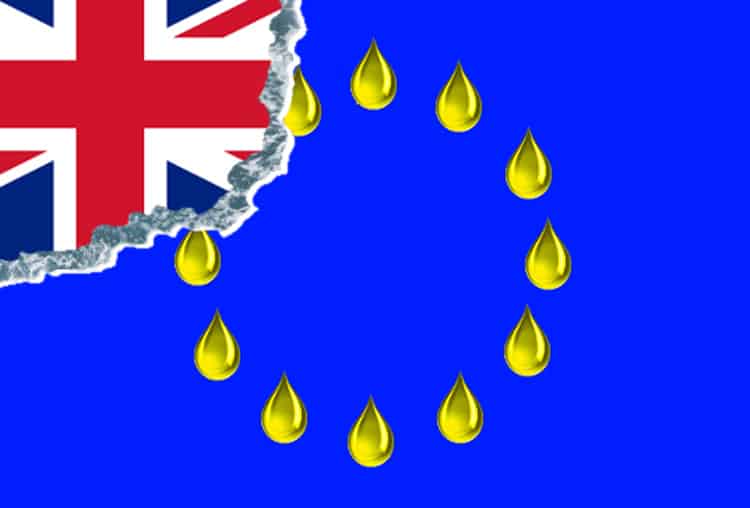Bu Paul Laverty, business development for Ireland and the UK, Degiro
Over the past few weeks, there had been much speculation about how a Brexit decision would affect financial services and the companies offering these services.
Degiro, a European broker offering its services in most European countries allowing access to all major European and worldwide markets, understands that investors may have uncertainties regarding the Brexit decision. However, the firm emphasises that among the uncertainty which comes from these situations, opportunities arise as well.
In any case, Degiro argues that the sectors and countries which are highly dependent on bilateral trade between the EU and UK will be affected by a decrease in trade or changes in trading conditions which would potentially increase costs. Among the most exposed sectors are those of minerals, transport and of course financial services.
WHAT A BREXIT MEANS
The London Stock Exchange announced on Friday morning that they would open as normal following the Brexit result. Markets took an early tumble as the pound fell over 10% to its lowest value in three decades while the FTSE 100 lost more than 8% of value in the first few minutes of trading. Rating Agency Standard and Poor’s proceeded to announce the country as likely to lose the AAA credit rating as current circumstances dictated the top rating be revoked.
Officially the time to leave the EU should take two years following the trigger of Article 50 of the Lisbon Treaty though this would likely need much more time given the complexity of the situation.
The initial negative effects of the Brexit result will reach multiple sectors of the country but will be primarily concentrated in the financial sector as news of the events unfolds
In the 1980s it took three years of negotiations for the exit of Greenland and the only contentious issue there was the fish. The withdrawal of the EU’s second largest economy will surely be significantly more complicated.
Moreover, any agreement on the new economic relationship with the United Kingdom would require consensus from the other 27 EU members. Britain would then need to renegotiate – from the beginning – more than 50 trade agreements the EU has with other countries. All this will take a long time.
CONSEQUENCES FOR THE FINANCIAL SECTOR
The initial negative effects of the Brexit result will reach multiple sectors of the country but will be primarily concentrated in the financial sector as news of the events unfolds.
The interconnection between EU and UK financial markets is far-reaching and has developed over the last 25 years. This result will now impose some serious changes to this relationship, which will need to be negotiated in the upcoming months and years.
Trade between the EU and UK is extraordinarily high in terms of level of investment between economies with nearly 50% of foreign investments in the UK comes from the EU.
The activity of UK regarding capital markets is by far the highest in EU. The UK accounts for 75% of activity in EU capital markets. The numbers in this point tell the story by themselves: 76% of European hedge fund assets are based in the UK with 74% of EU trading in OTC derivatives done in the UK. European bank exposure to the UK is even greater at $1.7tn in total. The expertise of the UK in the financial markets is so high that it affects the growth of the whole EU.
The internal effect on the UK’s economy will be off course substantial. Openeurope.org estimates that the worst and the best scenarios for the UK are as follows:
With worst-case scenarios citing a 2.2% losses in GDP by 2030 should Britain not close a trade agreement with the remainder of the EU whereas best-case scenarios citing full free trade agreements could lead to an increase in GDP of 1.6% in the same time frame. Moderate estimates are calling for a change of GBP between -0.8% and +0.6% compared with expected performance of the country should they have remained.
THE OTHER SIDE OF THE COIN

Paul Laverty
Current market fears over last night’s decisions stem from the fact that the situation has no precedent. Properly negotiated though, the decision may present a positive for both the country as well as investors.
Trade between the EU and UK is extraordinarily high in terms of level of investment between economies with nearly 50% of foreign investments in the UK comes from the EU
The exit would give the UK more freedom to renegotiate trade agreements on their own terms, which could have a positive effect. It has been argued that the exit would cause a drop in the valuation of the pound however this would not necessarily be a negative thing.
As the UK has very strong exporting power, in the short-term the drop in the valuation of the pound could spark increased trade, as it would be beneficial for exporters. Initially this could boost the economy and give it the necessary time to adjust to the changes and come up stronger in the long term.
Additionally, the more radical leave campaigners could argue that with a Brexit, the UK will not have to pay the nearly €10bn per year to the EU for aiding potential issues across the continent, and this amount will be added to the UK’s budget. With properly negotiated trade terms with the US, Asia, and India under its own terms and not under the regulatory bounties of the EU.
POSSIBILITIES FOR INVESTORS
Short-term volatility is already apparent for investors across Europe with the long term effects of the Brexit decision will not be known for some time. Even before 14:00, Degiro saw the highest single day trade volumes in the firm’s history. As investors react to the unfolding situation, Degiro will try to ensure that its clients will be able to trade without hindrance during these turbulent times and will continue offering its services for worldwide access in the lowest rates of the market.
Image (main): muffinn
About the blogger
Paul Laverty is in charge of business development for Ireland and the UK at online stockbroker Degiro.
The firm entered the Irish market last year with the lowest trading fees in Europe and has enjoyed widespread success across the country.



